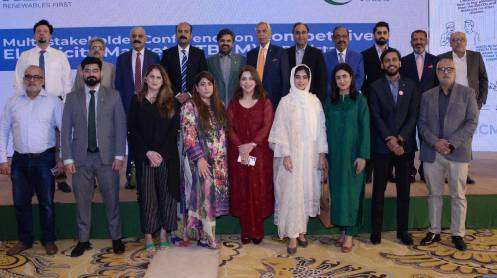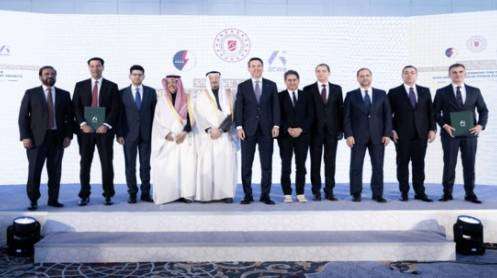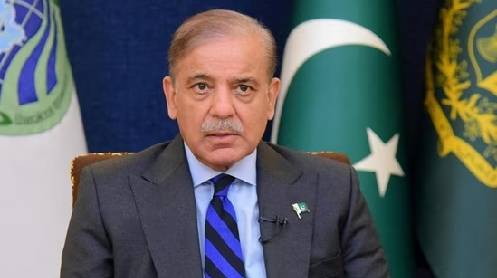Aug 12, 2025 Karachi: Sindh Energy Minister Syed Nasir Shah stated that the government is standing with the Business community. The Sindh government has already established SEPRA for the provincial electricity matters and planning to discuss business communities issues at the provincial level as well as federal level.
Organized by Renewables First and the Pakistan Business Forum (PBF), with the support of the Private Power & Infrastructure Board (PPIB), the Multi-Stakeholder Conference on Competitive Electricity Market in Pakistan set out a clear goal: to move beyond the monopolistic, single-buyer model towards a transparent, multi-stakeholder competitive regime, where electricity can be directly traded between producers and consumers.
The conference began with a keynote speech from Chief Organiser PBF, Ahmad Jawad, CEO Renewables First, Zeeshan Ashfaq and Tauseef H. Farooqi, ex-chairman NEPRA who highlighted the significance of moving towards a competitive electricity market for affordable electricity and Pakistan’s economy. The Competitive Trading Bilateral Contracts Market (CTBCM) is a thirty year old reform program which has been approved by the Economic Coordination Committee and NEPRA, however, remains to be operationalized. In the conference, Salman Amin, member Competition Commission of Pakistan highlighted that the monopolistic structure of Pakistan’s power sector remains a major concern and with the help of CTBCM, we can finally move towards competition and efficiency.
Abdul Rehman, Associate at Renewables First, explained the elements and history of the CTBCM reform, noting that the government has decided to launch the competitive electricity market with an initial 800MW, to be increased in the future. His remarks were followed by the first panel discussion featuring Tahir Basharat Cheema, former MD PEPCO; Amjad Ali Raja, CEO Thar Energy Ltd HUBCO; and a representative from the Independent System and Market Operator (ISMO). All emphasized the need to open the market for bilateral electricity trade to ensure fair competition and transparency. Mr. Cheema stated that poor institutional decisions had crippled the power sector. Mr. Tauseef highlighted that the government failed to attract a single bid for a 600MW solar plant, while KE successfully completed an auction for 640MW. Both stressed that if the government eased its control and allowed private sector participation, it could generate funds and create business opportunities. Another key point raised was that the government must be transparent in its planning and operations, avoiding closed-door decision-making.
The second panel included Junaid Naqi, President Korangi Association of Trade and Industry, Mujtaba Khan CEO Reon, Rehan Javed FPCCI, and Saleha Hassan PBF. Mr. Mujtaba stated that without serious reforms, the national electricity grid was headed for collapse, and the government must consult industrial stakeholders to figure out the way forward. He further added, the weakest link in the power sector chain is the distribution companies, their performance is poor, pushing consumers to go off grid.
Ramsha Panhwar, researcher and energy specialist from Renewables First highlighted the importance of clean, cheap, and reliable supply of electricity for the industries which the government has so far failed to deliver. She informed the audience that over 80% of the proposed wheeling is composed of stranded costs and cross-subsidies, making open access prohibitively expensive. Instead, the government must opt for a phased and transparent recovery mechanism which does not burden the ordinary consumers while at the same time making the wheeling charges attractive for industrial stakeholders.
In the conference, researchers and industrialists collectively demanded that the government provide a clear, consistent, and long-term plan for the recovery of stranded assets and ensure market growth under CTBCM. They also demanded that the government not limit the market size to 800 MW which was too small. The market appetite is much larger, said Mr. Mujtaba Haider, and if provided fairness in wheeling and facilitation, the industry would happily participate.
The panel discussions were followed by remarks from the President PBF Karachi Malik Khuda Bakash, who commended the efforts of stakeholders to organize the conference around such critical issues.
PBF & RF demand to move away from a single-buyer model to a transparent and competitive electricity market







